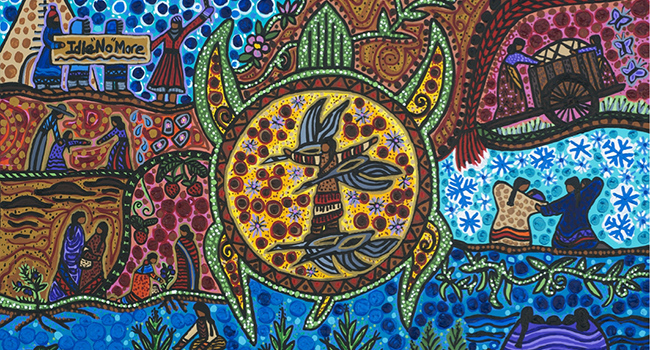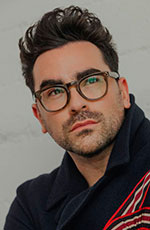Since its launch in 2017, the massive open online course Indigenous Canada has been among the most popular MOOCs in Canada. But in 2020, its popularity skyrocketed.
“It all started in March with COVID,” said course instructor Paul Gareau. “Normally around 300 new students register each week, but in March we started getting around 1,000. Then, when Black Lives Matter started to hit the news, those numbers jumped to over 5,000, and one week there was over 10,000.”
But when the Emmy award-winning star and creator of Schitt’s Creek, Dan Levy, posted online that he would not only be taking the course, but also participating in weekly discussions with course instructors Tracy Bear and Gareau, enrolment spiked.
The week Levy announced his plans, more than 50,000 new students signed up.
“If 2020 has taught us anything, it’s that we need to actively relearn history – history that wasn’t taught to us in school – to better understand and contextualize our lives and how we can better support and be of service to each other,” Levy said at the time.
Every Sunday from August to November, Bear, Gareau and Levy met virtually, and learners tuned in through YouTube to watch as they discussed that week’s course module. Each week they were joined by a different academic from the Faculty of Native Studies, including Shalene Jobin, Chelsea Vowel and Kim TallBear.
The discussions, Gareau said, were more like visiting, in line with Indigenous ways of sharing knowledge, than a formal discussion.
“So much of what Indigenous studies is trying to frame, we were operationalizing in these discussions,” said Gareau.
“When we got together we just dedicated ourselves to it and to the learners, so it was always reciprocal. We framed it almost like ceremony, which I think was a good impulse, because then we were giving ourselves more honestly and openly to each other and to the learners,” Gareau added.
Levy’s reach meant learners from almost every country signed up for the course and were engaging with Indigenous knowledges and epistemologies.
For Meera Shankar, who grew up in Connecticut and now lives in Berkeley, Calif., the course was both a welcome distraction from pandemic life and an important opportunity to learn about the “truths behind our nation(s).”
She signed up for Indigenous Canada after hearing about it through Levy’s social media channels.
“Each week brought me down a different rollercoaster of emotions, but there was always a warmth, kindness, and comfortable tone – even during the tough conversations. As students, we had a safe space to dive into ‘the uncomfortable,’” she said.
Bear said an important piece of the course’s popularity is that it offers a perspective not easily found in history or textbooks.
“All the presenters, the texts, all of it is coming from an Indigenous perspective. So I think people are seeking out information that comes from Indigenous minds, and they’re finding it within the MOOC,” said Bear.
Importantly, Gareau said, Indigenous Canada is not cultural awareness or competency training. Rather, it is “Indigenous studies disciplinarity in action,” he said.
“The biggest comment was, ‘You guys do this in a way that’s so gentle, and we can actually understand and engage with it and make relation to the knowledge.’ And that’s because of our discipline.”
Following his completion of Indigenous Canada, Levy once again took to social media to share his support for both the course and the Faculty of Native Studies, pledging to match donations to the faculty up to $25,000.
| By Jordan Mae Cook
Folio, a Troy Media content provider partner, is the University of Alberta’s online publication.
The views, opinions and positions expressed by columnists and contributors are the author’s alone. They do not inherently or expressly reflect the views, opinions and/or positions of our publication.



